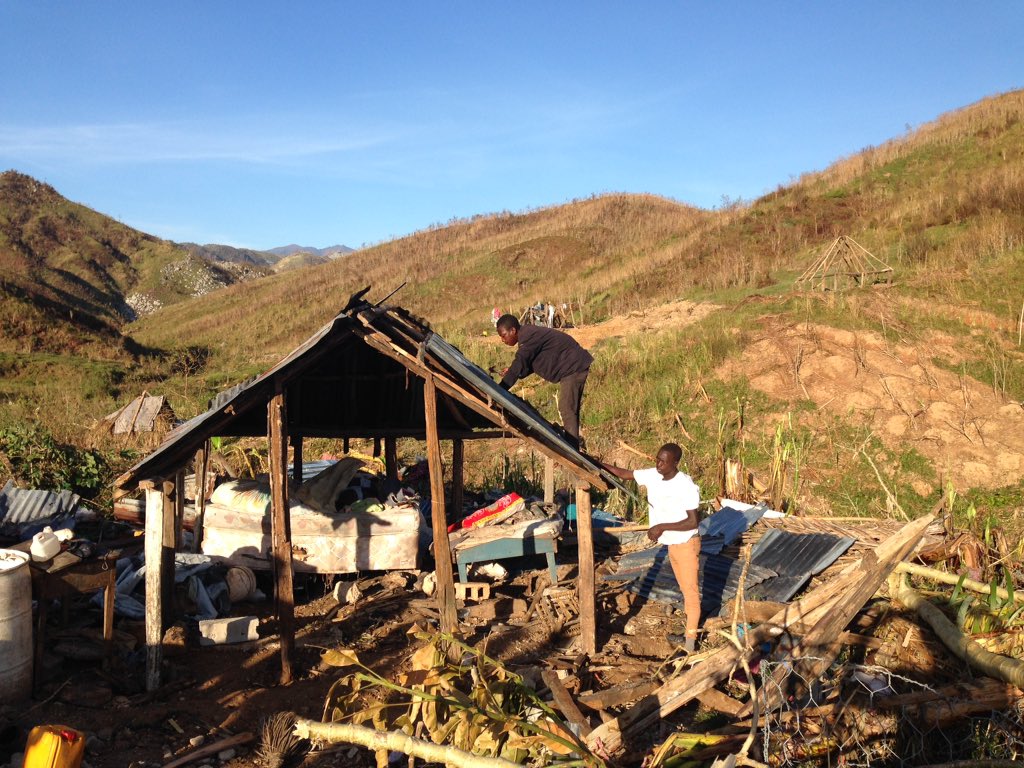 JAKE JOHNSTON, johnston [at] cepr.net, @JakobJohnston
JAKE JOHNSTON, johnston [at] cepr.net, @JakobJohnston
Johnston is a research associate at the Center for Economic and Policy Research in Washington, and lead blogger for its “Haiti: Relief and Reconstruction Watch” blog.
He said today: “After the passage of Hurricane Matthew, eyes are once again turning to Haiti. Millions of dollars and goods have been pledged as international actors mobilize in response to another disaster. The Haitian government has said it will lead the relief efforts and coordinate the many foreign actors on the ground in order to avoid the pitfalls that plagued the response to the devastating 2010 earthquake. With entire communities destroyed, hundreds dead and an increasing number cholera cases — introduced by UN troops six years ago, the needs are immense. But every effort must be made to support local institutions and organizations, not supplant them.
“New revelations from emails have revealed the faint line between the Clinton Foundation and the Clinton State Department in Haiti. In 2010, the United States intervened in Haiti’s elections, pressuring the government to change the results and eventually leading to the election of Michel Martelly. While $400 million in foreign assistance after the 2010 earthquake subsidized a Korean-run garment factory, many of the greatest needs on the ground, such as housing, went unaddressed. The largest U.S.-financed housing project, built next to the new factory, was plagued by waste, fraud and abuse, leading to the suspension of two American contractors.” See recent piece from ABC News: “‘FOBs’: How Hillary’s State Dept. Gave Special Attention to ‘Friends of Bill’ After Haiti Quake” and prior piece from Johnson: “Clinton E-Mails Point to U.S. Intervention in 2010 Haiti Elections.”
BRIAN CONCANNON, Brian [at] IJDH.org, @HaitiJustice
Executive director of the Institute for Justice & Democracy in Haiti, Concannon said today: “The damage caused by Hurricane Matthew in Haiti was as much the result of misplaced priorities by the international community as it was wind and rain. Matthew hit neighboring Cuba with the same force, but no one was killed there, while over 1,000 died in Haiti. This extreme vulnerability to natural disaster — previously demonstrated by the 2010 earthquake — was caused, in large part, by international policies that promoted instability in Haiti and deprived its governments of the resources it needed to develop basic government services, including disaster preparation and response.
“The 2004 overthrow of elected President Jean-Bertrand-Aristide, with substantial support from the United States, Canada and France, ended Haiti’s longest and most successful period of Constitutional rule. That coup d’état led to the dismantling of the government, and 3,000 deaths in Tropical Storm Jeanne that year. In 2010, the Obama administration forced Haiti’s electoral council to change the results of the Presidential election, which ushered in the regime of President Michel Martelly, whose widespread corruption siphoned off money earmarked for infrastructure that could have saved lives in the hurricane.
“Instead of investing in government capacity, the international community’s principal investment in Haiti since 2004 has been over $7 billion for a UN Peacekeeping Mission in a country that has not had a recognized war in over 50 years. The Peacekeepers have not brought stability — Haiti’s current government is an interim, unconstitutional one — but they have brought a cholera epidemic that has killed between 10,000 and 30,000 Haitians.”